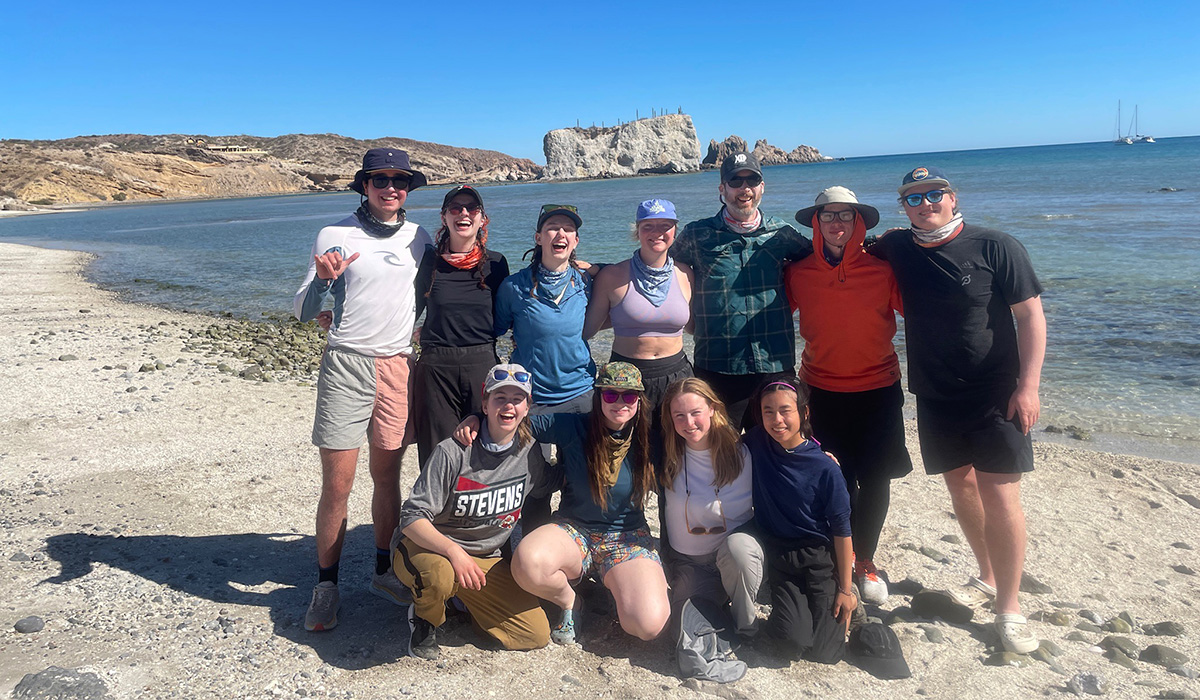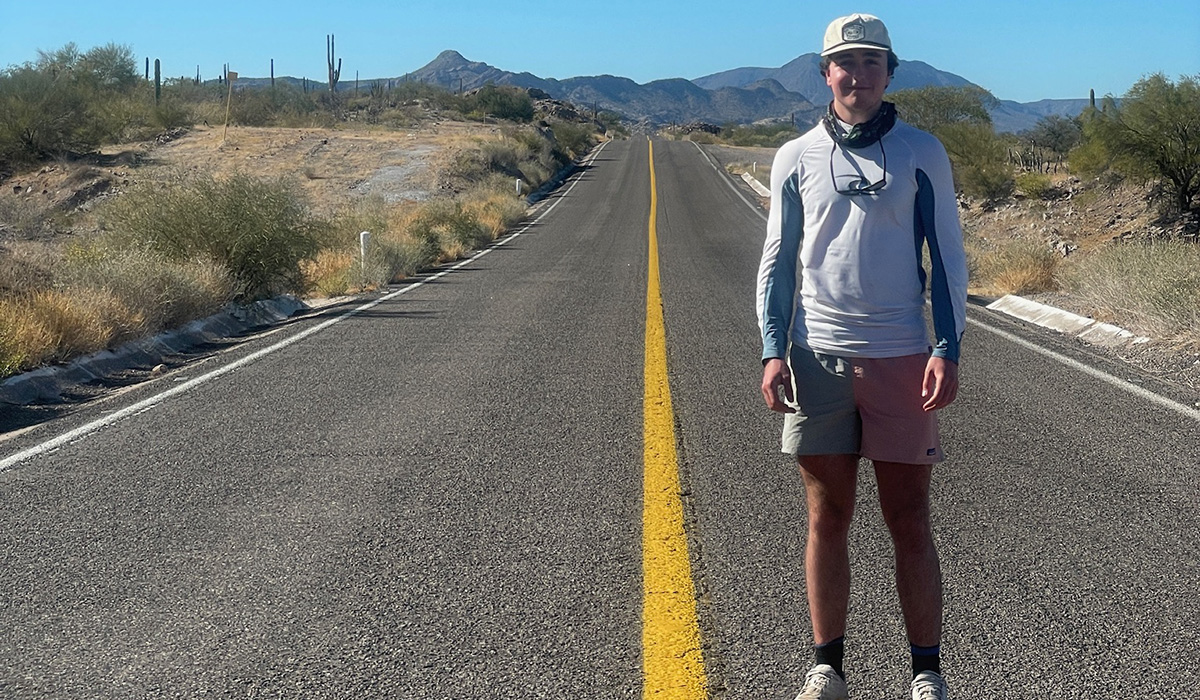
Reflection is a way for students to interpret their perspectives of the world. It’s a key component of the Gettysburg Approach, as students connect the skills they gain to tangible outcomes. For Christopher Mergner ’24, learning how to reflect on his academics and experiences has helped him apply the knowledge and enduring skills he gained at Gettysburg College to future leadership endeavors.
Mergner’s path toward reflection began with creating an individualized, interdisciplinary studies major called Leadership, Philosophies, and Humanism his sophomore year. As part of the application process, students must choose each individual course carefully and explain how their courses connect to the goals of their proposed major. Mergner selected courses that adapted his interests in managerial principles of leadership into philosophy to create a synthesized and focused program.
“It was very important to pick each course and say, ‘Why is this important to me?’ That made me think a lot about my education, how it would benefit me, why it relates to what I’m interested in, how I’m going to come into the world with this degree, and what I’m going to do with it,” Mergner explained.
Earlier this year, as part of January Term (J-Term), Mergner embarked on the Leadership Expedition with the Garthwait Leadership Center (GLC) to learn more about the power of reflection while kayaking through the Sea of Cortez, which sits along the Baja Peninsula near Mexico.
“The GLC is an incredible organization. Organizations like the GLC provide a really great strategy, especially for first-years and sophomores, because they have the opportunity to get the Leadership Certificate [or become an] outdoor facilitator or a leadership mentor,” he said.
Throughout the expedition, Mergner journaled his experiences and thoughts. He recognized how reflecting on his experiences forced him to step back and examine everything more closely. He learned that the best reflection methods involve writing in a journal or communicating with a trusted confidant.
“Without those words on paper or speaking with someone about it, you can get stuck inside your own head,” said Mergner. “When you have things written out about how you feel, it makes you take a step back and say, ‘Is this how I feel? Is this what’s really going on in my head?’ And that’s when you can start to make changes.”
He also recommends that people reflect immediately after an event, so the details are fresh in their minds. He highlights the importance of reflecting on how others interpret a situation or event, putting oneself in their shoes to see a different point of view.
“Each night, we gathered together to reflect on our day in the water and what things we did well or could have done better,” he said. “It is these moments that compel you to consider your actions and words said throughout the day and how that affects you and those around you.”

Mergner learned to look for patterns during the trip, especially ones that demonstrated an inefficient use of time such as those during morning preparations. By examining these patterns and communicating them with the group, students on the expedition learned each other’s strengths and developed their problem-solving skills. Then, they were able to travel longer distances and grow closer together as a result of their improved processes and teamwork. This type of reflection has also played out in Mergner’s co-curricular activities. While working at the Painted Turtle Farm, Mergner began asking his peers questions to understand their motivations and encouraged them to find meaning in their work.
“When you’re leading a group and you see something going wrong, it’s important to reflect on where it goes wrong. What is happening within the processes? Is it consistent? Is there a set pattern of events leading up to this undesirable result that may contribute to it?” said Mergner. “The same can be said about the other side of the spectrum. If things are going well, why might this be? And can we apply a similar methodology to the other parts of our goal that may not be going so well in order to arrive at better results? I believe this is a very powerful mindset.”
Following graduation, Mergner sees reflecting on his experiences in the classroom as a Teach for America corps member even more important, especially as he explores the values of his students in Hawai’i to connect with them as an educator and build a supportive learning environment.
By Katie Lauriello ’25
Photos by Christopher Mergner ’24
Posted: 04/30/24